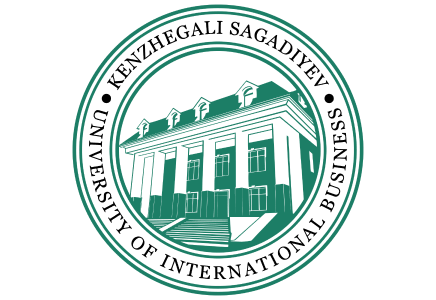Organization and Management of Logistics
Languages of instruction:
Kazakh, Russian, English
Specialized subjects at the UNT:
Mathematics and Geography
International programs:
Academic mobility; Dual Degree program
What is it?
This program is aimed at training specialists in the field of production areas. Training of logisticians who possess the skills of accurate calculation and justification of decisions on the management of material, information, and financial flows in order to ensure minimum total costs, a high level of service, and interaction of all elements of the transport, folding, and production process. The purpose of the training is to prepare for the following types of activities: Research and consulting, calculation and design, organizational and managerial.
Training of qualified specialists in the field of logistics who are able to organize the logistics sphere of production in a modern logistics system and its interaction with the logistics infrastructure of the services market, and who have the knowledge and skills of accurate calculation and informed decisions on the management of material, information, financial flows in order to ensure minimum aggregate costs, a high level of service, interaction of all elements of transport, warehouse, production process.
- Systematizes knowledge in the field of the history of organization and logistics management, external economic, financial activities in accordance with the mission of the company, describes and recognizes the skills of policy development, economics, marketing and solutions in the field of organization and logistics management, formulates the ability to be responsible for their implementation. Shows the ability to formulate tasks, shows knowledge and proficiency in several languages, professional terms related to the implementation of professional and research functions in the organization of logistics management.
- Analyzes and evaluates modern scientific methods, tools and technologies of logistics management and economics in general, classifies effective business management methods. Illustrates and develops management systems in the process of organizing logistics management, taking into account customs, economic features of business in the international direction.
- Evaluates new methods, techniques and technologies in the organization of logistics management related to customs, economic, accounting issues. Explains and ranks the skills of management, accounting in professional activities in the organization of logistics management. Interprets and proves interest, deep knowledge and skills in professional growth and organization of logistics management.
- Evaluates the business, analyzes and calculates the competitive advantages of the company in the organization of logistics management, modifies the system of international business logistics taking into account strategic perspectives, explores planning and management methods, plans and evaluates external and internal factors of the company’s activities, applies new scientific methods and tools in management, applies new management tools in management taking into account the psychological characteristics of personnel potential.
- Classifies and is able to generalize statistical, economic, digital, financial quantitative and qualitative market research in the organization of logistics management, in the organization of warehousing, storage of material flow, recognizes and systematizes market development trends, evaluates the rationale for choosing various sources. Identifies and summarizes the tools of research and analysis of the organization of international business logistics, predicts and recognizes based on knowledge of market needs and customer experience in the development of necessary and appropriate solutions and the implementation of these solutions in the field of logistics.
- Recognizes and challenges the ability in research, legal activities to obtain a systematic view and improve the effectiveness of managerial, scientific, external economic impact on the organization of logistics management.
- Argues for the ability to manage changes, flexibly and adequately responds to a changing situation, applies project management skills, identifies and analyzes the problems of organizing logistics management organizations, finds and selects alternative digital solutions, implements and evaluates the results in organizing the movement of material flow in the logistics management organization.
- Builds communication technologies through knowledge of languages and professional terms in the logistics management organization. Organizes effective communications, collects contacts, connections, relationships both inside and outside the company.Demonstrates and demonstrates proficiency in various forms of communicative influence with knowledge of many languages and professorial terms. Demonstrates the skills of forming and organizing an effective team, shows the ability to act in a team, demonstrates an understanding of his role and place in the team, develops the ability to influence the results of teamwork, to maintain team spirit in the logistics management organization.
№ | Name of discipline |
1 | Economic Theory and Microeconomics |
2 | Accounting and Audit |
3 | Introduction to Research Methods |
4 | Kazakh (Russian) language 3 |
5 | Kazakh (Russian) language 4 |
6 | Mathematics in Economics |
7 | Management |
8 | Fundamentals of law and anti-corruption culture |
9 | Business Information Management |
10 | Foreign language 5 |
11 | Foreign language 6 |
12 | Second foreign language 4 |
13 | Macroeconomics |
14 | Marketing |
15 | Legal aspects in international logistics |
16 | Psychology of business relationships |
17 | Statistics |
18 | Customs logistics |
19 | Project management in logistics |
20 | Finance |
21 | Econometrics |
22 | Second foreign language 1 |
23 | Second foreign language 3 |
24 | Special Course 1: Practice Firm |
25 | Special Course 2: Practice Firm |
26 | Logistics of material flows |
27 | Warehousing logistics |
28 | Logistic management of foreign trade enterprises |
29 | Financial logistics |
30 | digital logistics |
31 | Second foreign language 3 |

